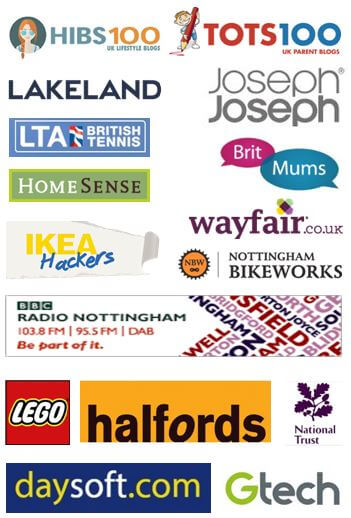Is it time to dump my Cash ISA & go for his wilder sibling, the Stocks & Shares ISA, instead?
Nobody likes paying tax, so when the government introduced the Individual Savings Accounts (ISA) back in 1999, entitling everyone in the UK to tax-free savings and investments up to a specified allowance, (the current ISA limit for 2017/18 is £20,000), we jumped at the chance. Now, every April, we dutifully do our research, shopping around for the best rates and reading the reviews. However, in recent years we’ve found ourselves transferring money out of one poorly performing cash ISA and into another that’s not much better. This year is no exception, but with the best easy access cash ISAs of 2017/18 offering depressingly low rates of 1%, we’ve finally decided enough is enough! It’s time to take more of a risk, by considering a product which could offer us a much better return on our investment, the Stocks & Shares ISA.
Why did I stay with my Cash ISA for so long?
Interest rates, including those for tax-free savings products like Individual Savings Accounts (ISAs) have been bumping along at ridiculously low rates for years, so why have we waited until now to consider transferring some of our savings into a Stocks & Shares ISA? Well, to quote Pretty Woman, ‘I’m a safety girl’ (although I don’t think she was referring to her Individual Savings Account at the time). I don’t like to take risks. That’s why I’ve put up with earning peanuts on our hard-earned cash for far too long. Don’t get me wrong, we’ve had money invested in a Stocks & shares ISA for over ten years and it’s performed well during that time, giving us a generous return on our investment. However, until now, we’ve played safe, splitting our savings between Cash ISAs and Stocks & Shares ISAs. That’s because, despite the prospect of a higher rate of return with a Stocks & Shares ISA in the long-term, there are no guarantees. Unlike a Cash ISA, our money isn’t safe and our investment could go down as well as up.
So why choose a Stocks & Shares ISA?
If there’s a risk with a Stocks & Shares ISA, why do people consider this tax-free savings option at all, especially as the introduction of the Personal Savings Allowance (PSA) in April 2016 means everyone can earn up to £1,000 tax-free interest on savings (depending on your rate of income tax) from any source?
The short answer is, Stocks & Shares ISAs should be seen as a long-term investment option, not a quick-win. If you don’t mind locking away your money for at least 5 years, you could also see a much better return on your investment compared to cash ISAs and the best performing saving accounts. Again, there are no guarantees but the longer you invest, the more chance your investments have to recover from any short-term stock market volatility. However, if you do plan on locking some money away, don’t tie all your money up in ISAs. Try setting aside some cash, so you have something you can access easily in an emergency.
But what if you don’t have £20,000 to invest?
The good news is, you don’t need a lump sum to get started. Most stocks & Shares ISA providers allow regular monthly deposits. For example, you can invest as little as £50 per month with Fidelity. Even investing a small sum every month can soon add up. If you’re still not convinced you’ve got money to invest in an ISA, read ‘Give your ISA a £2,500 Boost (without spending a penny)‘ by Emma-Lou Montgomery from Fidelity Personal Investing. In the Article, Emma-Lou explains how you easily claw back thousands of pounds and put it to better use by making a few changes to your regular spending.
Does it matter when in the tax year I start my ISA?
Investing a lump sum or making regular monthly investments at the start of the tax year, generally yields better results than waiting until the last minute. That’s because your money has an additional 12 months of tax-efficient growth potential. You could also benefit from the impact of compounding – the ‘snowball’ effect of building new investment earnings on any investment earnings you’ve already achieved. Albert Einstein dubbed this exponential increase in the value of an investment as the ‘8th wonder of the world.’
For more information on the importance of starting an ISA early in the tax year and the power of compounding read Fidelity’s guide: ‘Why start an ISA early?’
Fancy a bonus?
If you’re interested in opening a Stocks & Shares ISA, it’s worth seeing whether you can get cashback on your chosen ISA by applying via Quidco or Topcashback. Some ISA providers are offering well over £100 cashback, depending on how much you are looking to invest.
Further information.
If you’re thinking of opening a Stocks & Shares ISA, the following links are a good place to start. If you need additional information, it’s always a good idea to speak to a financial adviser:
Money-saving expert: Stocks & Shares ISAs.
Fidelity UK: What is an ISA? ISA Allowances 2017/18
Gov.UK: Individual Savings Accounts.
Over to you.
In this era of low-interest rates, are you prepared to make the switch to a Stocks & Shares ISA in the hope it will mean a better return on your investment in the long-term? Do you have any savings invested in tax-efficient products like ISAs? What do you think about Stocks & Shares ISAs? Did you know basic rate taxpayers could now earn up to £1,000 a year tax-free interest on their savings (£500 for higher rate tax payers)? As always, I’d love to know what you think.
Pin for later:
The value of investments in Stocks and Shares ISAs can go down as well as up so you may get back less than you invested.
This is a sponsored post. As always, the words and opinions are my own and aren’t intended to be a personal recommendation in respect of a particular investment. As with all financial products and investments, I recommend seeking independent financial advice.









3 Comments
Leave your reply.